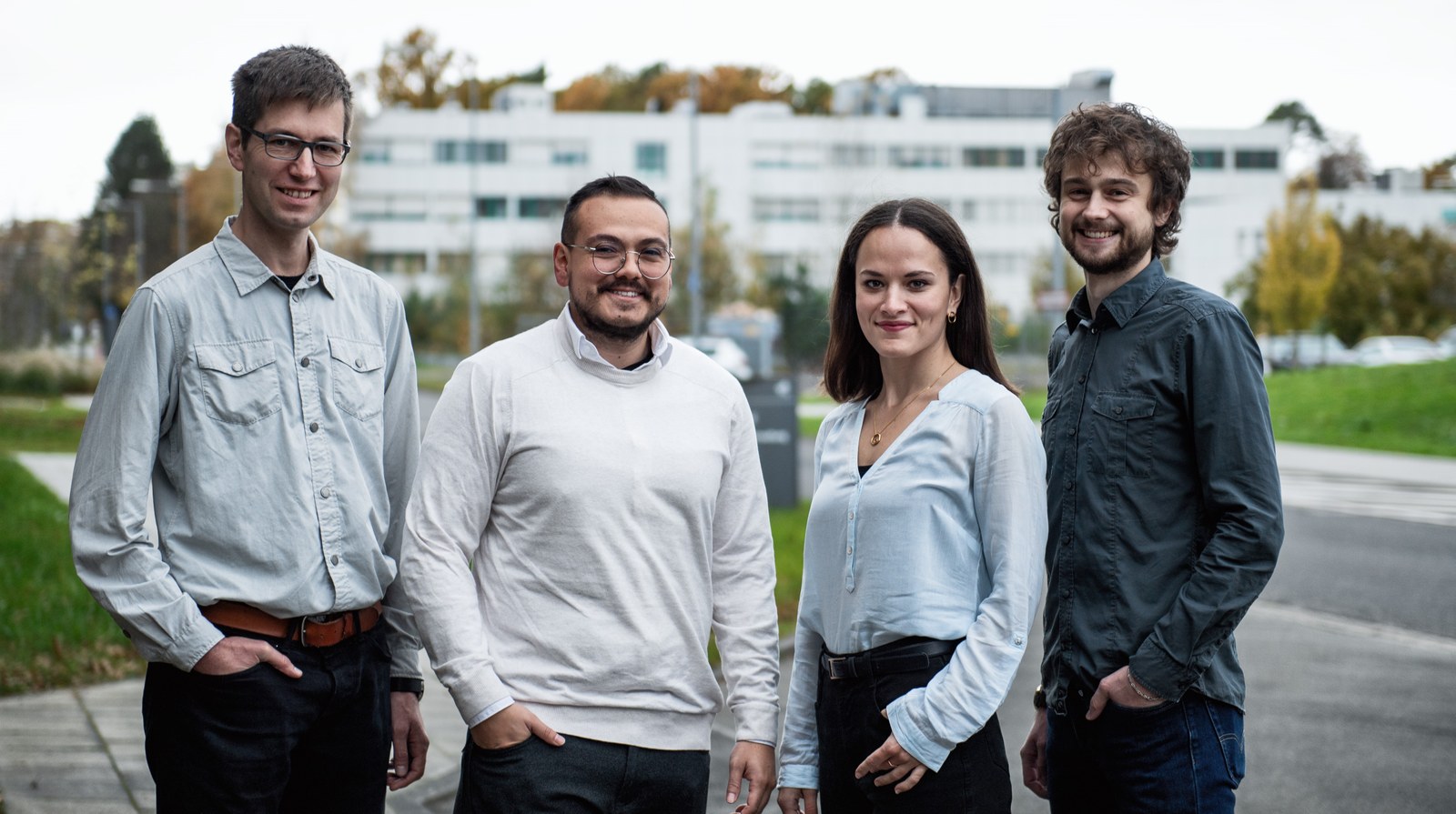Start-up "heatbrAIn" accelerates the heat transition
- heatbrAIn revolutionises data collection for municipal heat planning and heat network construction and transformation
- The start-up from the Institute of Solar Research offers customised geodata and energy models for efficient and precise planning at building level
- By integrating various data sources and continuously adapting to local needs, heatbrAIn facilitates the planning process for engineering firms, heat suppliers and municipalities
- Focus on Energy, heat transition
heatbrAIn, a start-up from the DLR Institute of Solar Research, is revolutionising the way in which data on building stocks is collected and evaluated for municipal heat planning, heat network transformation plans and feasibility studies.
The startup heatbrAIn was founded on 27 February 2024 by Luis Blanco, Philip Groesdonk, Larissa Singer and Jacob Estevam Schmiedt and is based in Jülich. Groesdonk, Blanco and Estevam Schmiedt have developed AI-supported software at the Institute for Solar Research that provides municipalities and planning offices with comprehensive data sets on the building stock of a city or municipality, which are required for heat planning, among other things. Singer brings business and marketing expertise to the team.
In Germany, large cities with a population of 100,000 or more must draw up a heating plan by 2026 and smaller cities and municipalities by 2028. "It is an enormous challenge for cities and municipalities to compile the data required for demand modelling, as the basic data is available in various databases and formats. At the same time, heat planning offers enormous opportunities for the development of a heat model for the city, which can serve as a data basis until new heating networks are built. In our Buildings and Neighbourhoods working group, we have been working on such models for a long time. Luis Blanco, our group leader Jacob Estevam Schmiedt and I then had the idea of supplementing these models with a data solution and thus making them accessible for practical use in the heating transition. In this way, we can help those in engineering offices and local authorities who are planning the heating transition to achieve their goals," says Philip Groesdonk.
Customised solutions for efficient heat planning
heatbrAIn offers customised geodata and energy models by combining different data sources and improving them using scientific methods. Through consistent automation, the team provides an automated and quickly available data solution.
As heatbrAIn makes not only the result data but the entire model accessible to clients, it can be enriched with local information as the project progresses, further improving the quality of the modelling. This approach not only simplifies the process of data collection and analysis, but also ensures that the resulting plans are highly tailored to the local context. heatbrAIn's solution integrates only official or open data sources such as cadastres, 3D building data, census data and OpenStreetMaps and can therefore be created for customers under flexible licence conditions.
Based on this input data, the start-up uses physical models to calculate the heating load, heat demand and load profiles with hourly resolution. The level of detail provided by the three-dimensional building models enables a precise understanding of the energy requirements of buildings, which is essential for effective heat planning.
The core team of three - Blanco, Groesdonk and Singer - is currently still working from Cologne and Mönchengladbach. The plan is to move into the Startup Village of the Jülich Brainery Park this year, which is currently under construction. This is an inter-municipal business park of the municipalities of Jülich, Niederzier and Titz in the Rhenish mining area with a focus on "new energies" and the "energy transition".
Data and services for engineering firms and urban planners - for the benefit of local authorities
heatbrAIn's range of services is primarily aimed at engineering firms and urban planning consultants who support local authorities and heat suppliers in the heat transition. Essentially, heatbrAIn makes it easier to model the heating requirements of entire municipalities or cities, simplifying the process for all parties involved. At the E-World Energy and Water trade fair in February, the founding team had the opportunity to present its services to an expert audience for the first time. Larissa Singer comments: "The discussions with the trade visitors were very helpful and interesting for us and the feedback was fortunately very positive. We are already looking forward to the next events where we can present our services."
From research to practice - here we go
Now that the founding agreement has been signed, the next step is to work on specific projects with the first customers. "So far, we have been able to coordinate and further develop the required data points, standards used and data interfaces in pilot projects with interested planning offices and heating suppliers. We are looking forward to finally being able to use our solution in productive applications," says Blanco.
Nevertheless, the team does not want to lose contact with the scientific community: At the symposium on municipal heat planning organised by the Energy System Analysis Research Network in Berlin in April, Blanco and Groesdonk will be involved in a workshop on the data requirements of municipal heat planning.

